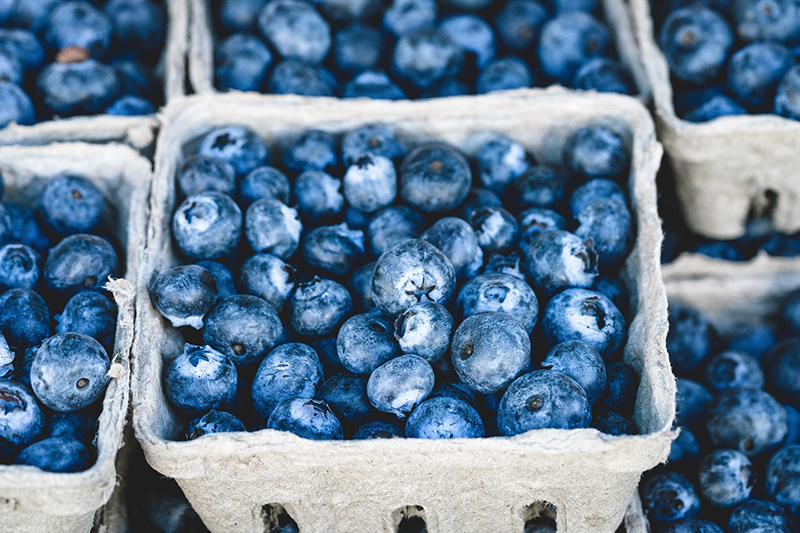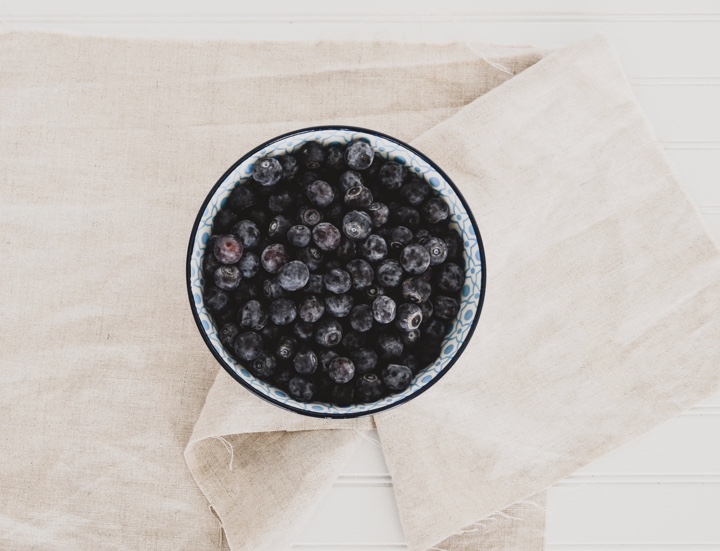TIPS & TRICKS
Learn about nutrition, how to buy, how to store, and more
A heart-healthy superfood, blueberries have just 80 fat-free calories per cup and are a good source of dietary fiber, vitamin C, protein and manganese.
Blueberries rank high in antioxidants, which studies suggest help protect against cancer, heart disease and other age-related diseases.
Recent scientific research shows blueberry consumption contributing to gut health, a reduction of inflammation, increased T-cell immune function, prevention of urinary tract infections and supporting neuroprotection in the brain against age-related memory deficits.
Fresh Washington blueberries abound June through August. When purchasing fresh blueberries, look for firm, plump, dry berries with smooth skins and a silvery sheen. The deep blue color is key to identify ripeness. Avoid soft or shriveled fruit, or any signs of mold. Containers with juice stains indicate that the fruit may be bruised. Ask your produce manager for WA State blueberries where you shop!


Refrigerate fresh blueberries as soon as you get them home, in their original plastic pack or in a covered bowl or storage container. Wash berries just before use. The phytochemicals found in blueberries (anthocyanins) are short-lived, so eat fresh blueberries within a few days of purchase; remaining blueberries can always be frozen for future use.
Discard any soft, shriveled or mold-tinged berries. Place completely dry berries, still in their original plastic pack, in a resealable plastic bag or, transfer berries to freezer containers or resealable freezer bags. This way, berries will freeze individually for incremental use. Remember to rinse previously unwashed berries before using.